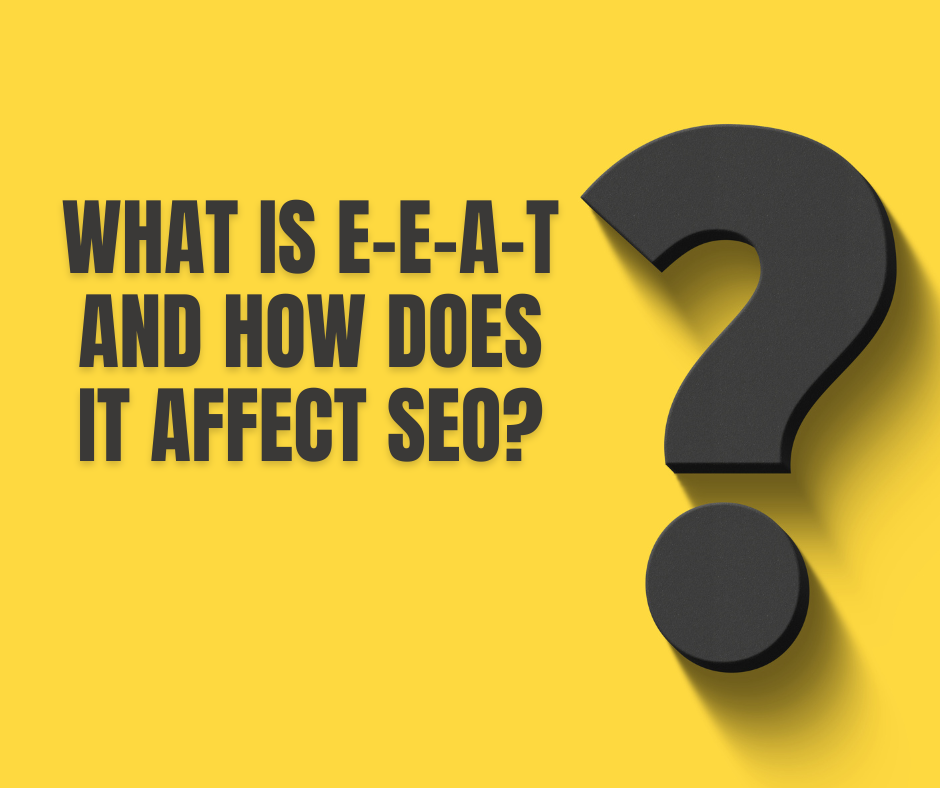In the ever changing world of search engine optimization (SEO), Google is always refining how it judges and ranks websites. One of the biggest concepts introduced in recent years is E-E-A-T, which stands for Experience, Expertise, Authoritativeness, and Trustworthiness. This framework is key to how Google evaluates the quality of content on the web and how relevant it is to users.
But what is E-E-A-T and how does it affect SEO? In this post we’ll dive into the details of what is E-E-A-T, how it impacts search rankings and how you can use it to boost your website visibility.
What Is E-E-A-T?
E-E-A-T is a set of rules that Google uses to judge the quality of content on a website. While Google’s algorithms use complex ranking factors, E-E-A-T provides a foundation for how content should be judged to be helpful, credible and trustworthy.
- Experience: The experience aspect refers to the level of real world experience and firsthand knowledge that the content creator has on the topic. Google favors content written by people with actual experience in the subject they’re talking about. This is especially important for topics where expertise is critical, such as health, finance or legal advice.
- Expertise: Expertise refers to the content creator’s credentials, knowledge and qualifications in the subject matter. Google wants content to be written by individuals or organizations that have demonstrated expertise, whether that’s through formal education, professional experience or industry recognition.
- Authoritativeness: Authoritativeness is about the reputation of the content creator or the website itself in the industry. If the website is recognized as an authority in its niche, Google will rank its content higher. This can be measured by factors such as backlinks from authoritative websites, social proof and industry recognition.
- Trustworthiness: Trustworthiness is how safe the content is. This can be measured by factors such as the website’s security (e.g. HTTPS), the accuracy of the content and transparency of who is behind the content. Websites that are trustworthy are less likely to provide misleading or harmful information.
In short, E-E-A-T is a holistic approach to judging content quality and how well it meets user needs by making sure the information is credible, reliable and trustworthy.
How Does E-E-A-T Affect SEO?
Google uses E-E-A-T as one of the frameworks to rank content. Websites that score high on experience, expertise, authoritativeness and trustworthiness will rank higher on Google search results pages. Let’s dive into how each component of E-E-A-T affects SEO.
1. Experience: Firsthand Knowledge
Experience is playing a bigger role in how Google judges content. While expertise is still important, the experience of the content creator is now given more weight. Content from individuals with firsthand experience—whether personal, professional or both—is considered more valuable by Google.
For example a blog post about fitness written by a certified personal trainer with years of experience in the industry will have more perceived value than a post from someone with no real experience in fitness. Google values content that reflects real life knowledge especially in industries where users are looking for credible and trustworthy information.
How to Optimize for Experience:
- Show the author’s credentials and real world experience in the subject matter.
- Encourage contributors who are practitioners or specialists in the field.
- Include case studies or personal anecdotes where appropriate to demonstrate firsthand knowledge.
2. Expertise: Establish Credibility in Your Niche
Google has always valued expertise when ranking content. The more knowledgeable the content creator the better chance of ranking higher. For technical or YMYL (Your Money Your Life) topics such as health, finance or legal advice Google requires content to be written by experts in the field to ensure accuracy and reliability.
When Google evaluates expertise it looks for credentials, experience and recognition. This can be reflected in factors like the author’s educational background, work experience, certifications or affiliations with reputable organizations.
How to Optimize for Expertise:
- Ensure content is written by qualified authors with verifiable expertise.
- Highlight the credentials of the content creators, such as degrees, certifications or professional experience.
- Link to authoritative external sources to back up claims which demonstrates both the expertise of the author and the accuracy of the content.
3. Authoritativeness: Reputation
Authoritativeness is about the reputation of your website and its content creators. A website that is recognized as an authority in its niche will rank higher in search results. Google evaluates authority through external signals such as backlinks from authoritative websites, social media mentions and industry recognition. For example, a website that gets backlinks from respected brands or industry leaders is seen as authoritative. Similarly, if a well-known figure in the industry links to your content, Google will see your site as more authoritative.
How to Optimize for Authoritativeness:
- Get high-quality backlinks from authoritative websites in your niche.
- Partner with experts and reputable brands.
- Create in-depth, high-quality content that becomes a reference for others.
4. Trustworthiness: Be Accurate and Secure
Trustworthiness is a major factor in Google’s evaluation. If your site is deemed untrustworthy, your rankings will suffer. Trustworthiness is built through transparency, accuracy and website security.
Google looks for trust signals such as:
- Secure websites: Sites using HTTPS are trusted more than HTTP sites.
- Accurate content: Well-researched, factual and error-free content.
- Clear author information: An “About” page, author bios and contact information helps establish transparency and trust.
- User feedback: Positive reviews and testimonials also signals to Google that your site is trustworthy.
How to Optimize for Trustworthiness:
- Use HTTPS to secure your site and reassure users their data is safe.
- Provide accurate information, especially for YMYL topics.
- Display author bios with credentials.
- Include clear contact details and a transparent privacy policy.
How E-E-A-T Affects Your SEO Strategy
Google’s focus on E-E-A-T means your SEO strategy should focus on content quality, expertise and user trust. Here’s how you can align your strategy with E-E-A-T:
- Focus on content quality: Ensure your content is well-written, authoritative and accurate. Prioritize user intent and satisfy the searcher’s needs.
- Highlight author credentials: Make sure your content has attribution to experts especially for topics that require professional knowledge.
- Improve site security: Use HTTPS to secure your site, it’s a trust factor for both users and search engines.
- Build authority: Engage in ethical link-building to get high-quality backlinks from authoritative sources in your industry.
Regularly update content: Outdated content can hurt your E-E-A-T score. Keep your content fresh and accurate to maintain authority and trustworthiness.E-E-A-T is a guide that helps Google to evaluate content and rank it. By focusing on Experience, Expertise, Authoritativeness, Trustworthiness you can create content that both search engines and users love.
Conclusion
As SEO changes, you need to adapt and focus on high-quality, well-researched and credible content. Apply E-E-A-T to your SEO strategy and you’ll get better rankings and site reputation, more organic traffic and business.


